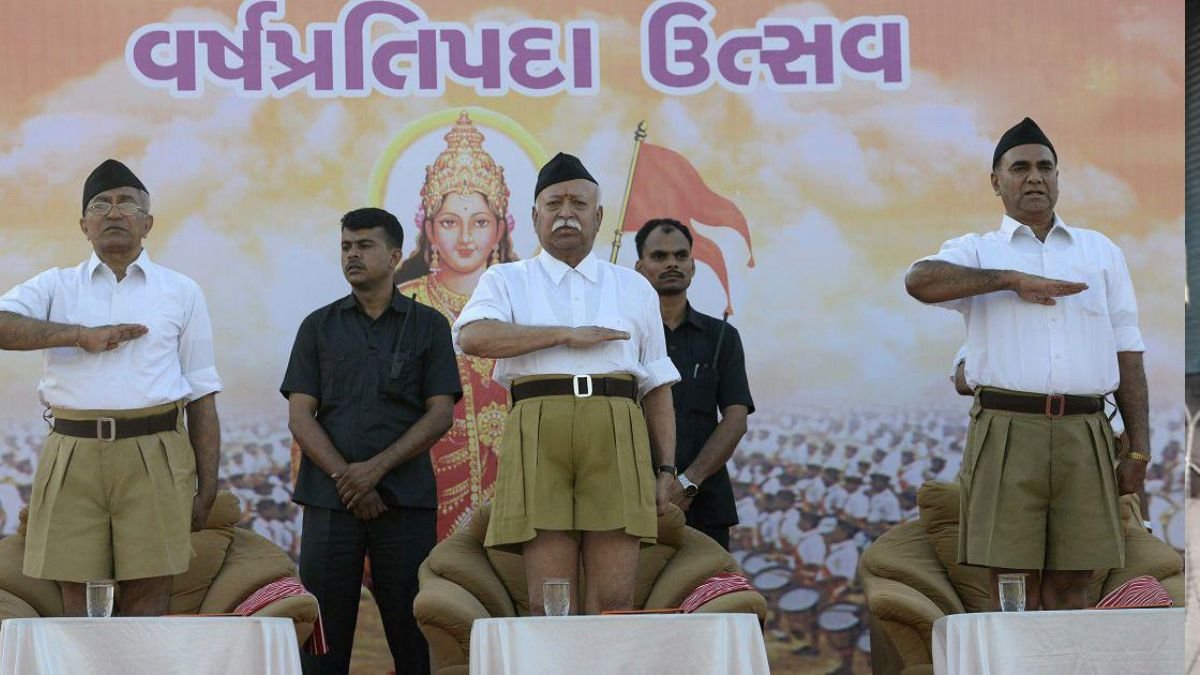To resolve the controversy surrounding the filming of the Gyanvapi mosque in Varanasi, Uttar Pradesh, RSS chief Mohan Bhagwat today called for “path through mutual agreement.”
Currently, there is a legal battle raging between Hindu and Muslim petitioners over a court-ordered filming of the mosque complex to determine whether Hindu idols and a “Shivling,” as the Hindu petitioners claim, have been discovered.
“We had a special attachment to some places, and we spoke about them, but we shouldn’t bring up new issues every day.” What’s the point of escalating the situation? This is acceptable because we have a strong emotional connection to Gyanvapi. But why look for a Shivling in every masjid?” asked the RSS chief, referring to the BJP’s ideological mentor, the Rashtriya Swayamsevak Sangh.
Until now, right-wing groups and leaders had suggested that the issue could turn into a street protest, evoking comparisons to the Babri Masjid demolition in Ayodhya, Uttar Pradesh, in 1992.

There is still a “Gyanvapi case” going on. We can’t go back in time and undo what has already happened. It was not created by today’s Hindus or Muslims. That’s when it happened. Assailants brought Islam into the country. During the assaults, Devsthans were decimated in order to lower morale.
“Problems were raised regarding places to which Hindus have a special devotion. Muslims are not perceived as a threat by Hindus. Hindu ancestors can be traced back to today’s Muslims. It was done in an effort to stifle their individuality and spirit. Because of this, he explained, Hindus believe they should be restored.
According to Mr Bhagwant, the RSS regards all forms of worship as holy and does not oppose them. All forms of worship are accepted and regarded as sacred by us. There is no doubt in my mind that they are descended from our great rishis, munis, and Kshatriyas, who practiced this form of worship. He went on to explain that they shared a common lineage.
On Monday, the Varanasi district court postponed a hearing on the Gyanvapi masjid committee’s petition challenging the legality of a suit brought by Hindu women.
Next to the Kashi Vishwanath temple is the Gyanvapi mosque. There are five female petitioners requesting that the court allow daily prayers in front of the temple’s outer walls and other “visible and invisible deities within the old temple complex.” Currently, the site is only accessible once a year for prayer.
The Allahabad High Court rejected a petition last month seeking an investigation into the “history” of the Taj Mahal in the midst of the Gyanvapi controversy. On June 9th, a Delhi court will rule on a petition seeking to restore Hindu and Jain deities to the Qutub Minar complex. In response to the petition, the Archaeological Survey of India (ASI) stated that Qutub Minar is not a religious site.







































